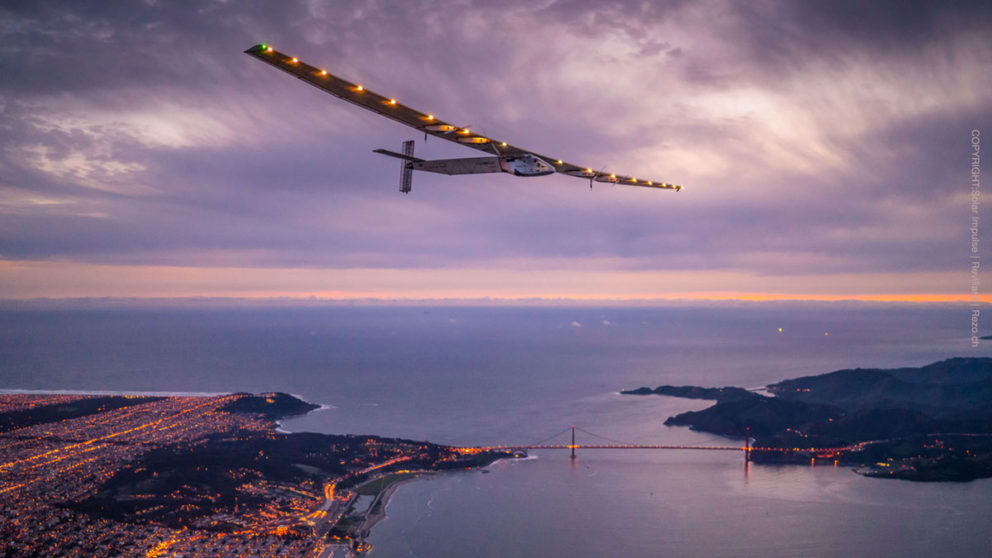
The most tense moment flying a solar powered plane is right at dawn. That’s when the batteries are at their lowest energy and you hope the meteorologists’ models are correct that you aren’t flying into a cloudy morning. Since the solar cells cover the top surface of the plane’s mammoth wings, you actually turn around and fly west to get more solar insolation and more power. And it’s a single seat plane, you’re over the Pacific Ocean on a multi day trip, and you’re only allowed 20 minute power naps every few hours.
Stories like this from Conor Lennon of ABB conveyed some of the technical and human factor challenges facing the Solar Impulse, a fully solar powered plane circumnavigating the globe. Students from two FREEDM partner universities, Florida A&M University and NC State, recently heard from Conor in person and from the flight control center in Monaco via Skype.
“For the past few years whenever I taught a senior or graduate-level course on photovoltaics, I always told my students about the Solar Impulse ,” says Dr. Simon Foo, Chair of Electrical and Computer Engineering at Florida A&M University. “So for my students to be able to talk to the engineers at ABB and witness the making of history is very inspiring.”
The plane is powered by over 17,000 photovoltaic cells molded into the wings that charge lithium polymer batteries. This surface area requires a wingspan greater than a Boeing 787 and a special hangar for storage. Honeycomb carbon fiber forms the structure of the aircraft. Flying at an average speed of 25 knots and altitudes between 8,000 and 24,000 feet, the plane started in Abu Dhabi in March 2015 and flew east to India and then China and Japan and Hawaii. At the time of these presentations, the Solar Impulse was in Allentown, PA on it’s way to New York City before another long leg over the Atlantic.
ABB is supporting this record breaking achievement to highlight clean energy technologies. “This plane is an engineering achievement that the aerospace industry claimed could not be done,” said Conor who is on assignment as an ABB spokesperson for the Solar Impulse. “What else do we think cannot be done?”
“The story of Solar Impulse and ABB’s work on the project is a great example of what makes engineering so extraordinary,” said Dr. Louis Martin-Vega, dean of the College of Engineering at NC State. “Proving that a solar-powered aircraft can circle the globe serves to motivate future engineers to tackle all of the grand challenges that humanity must face.”
At the presentation at NCSU, Howard Self also spoke about the ABB Smart Grid Center of Excellence located on NC State’s Centennial Campus and the close relationship with the FREEDM Systems Center.
